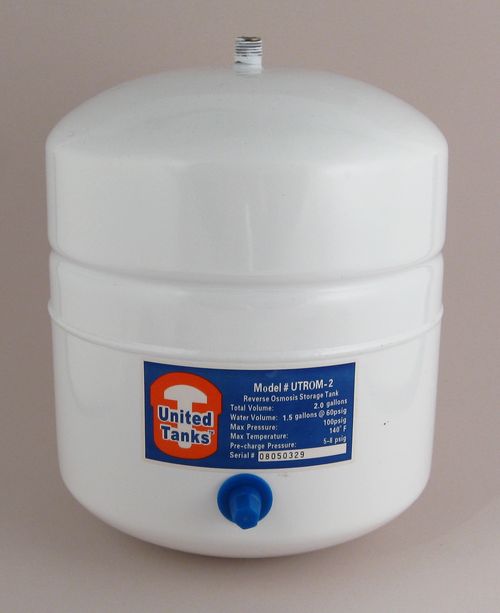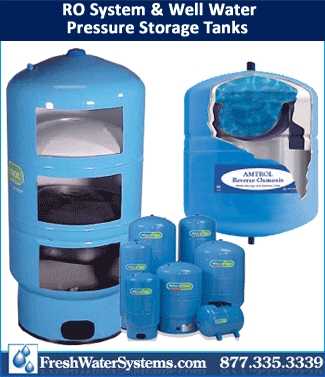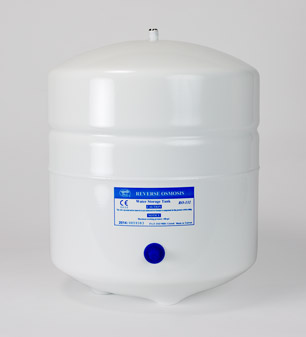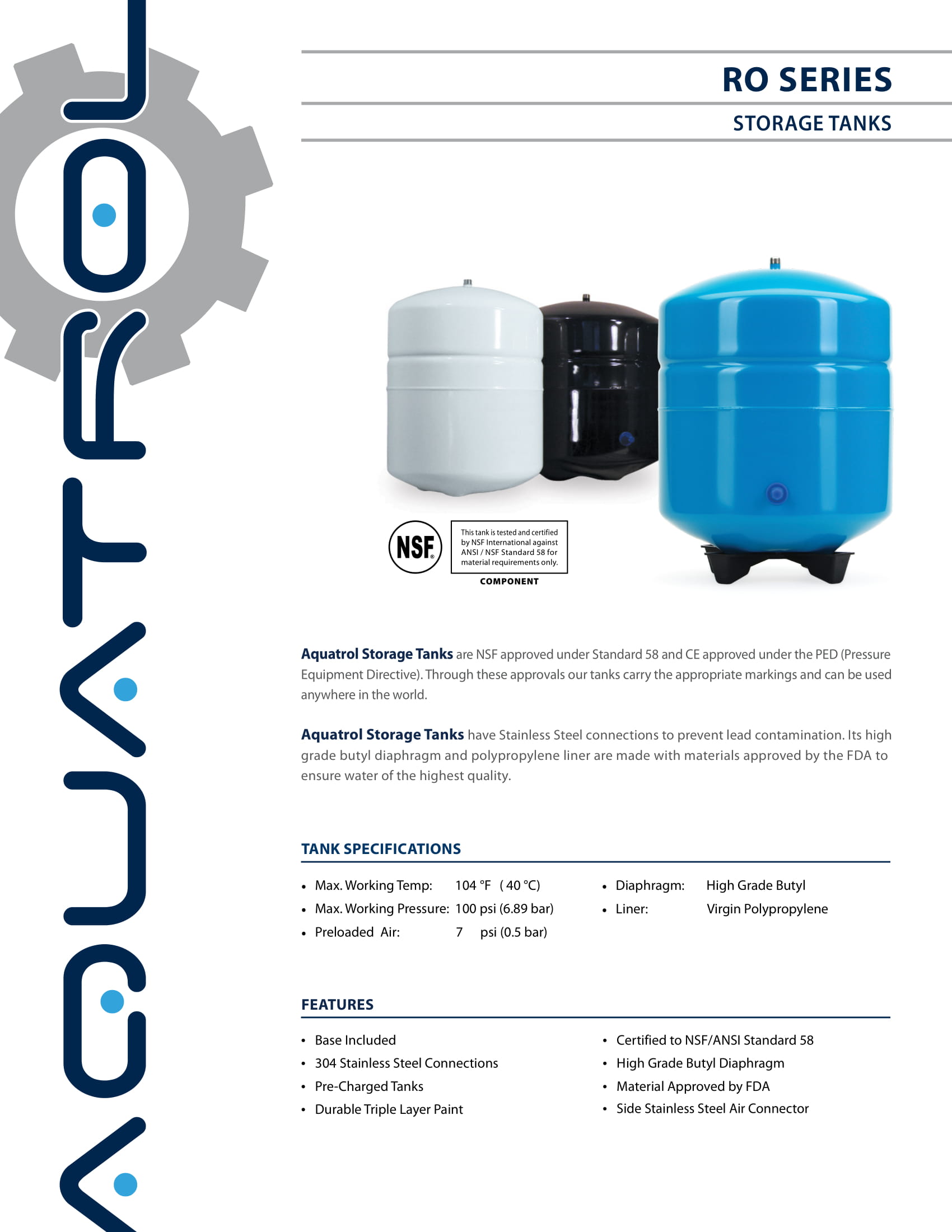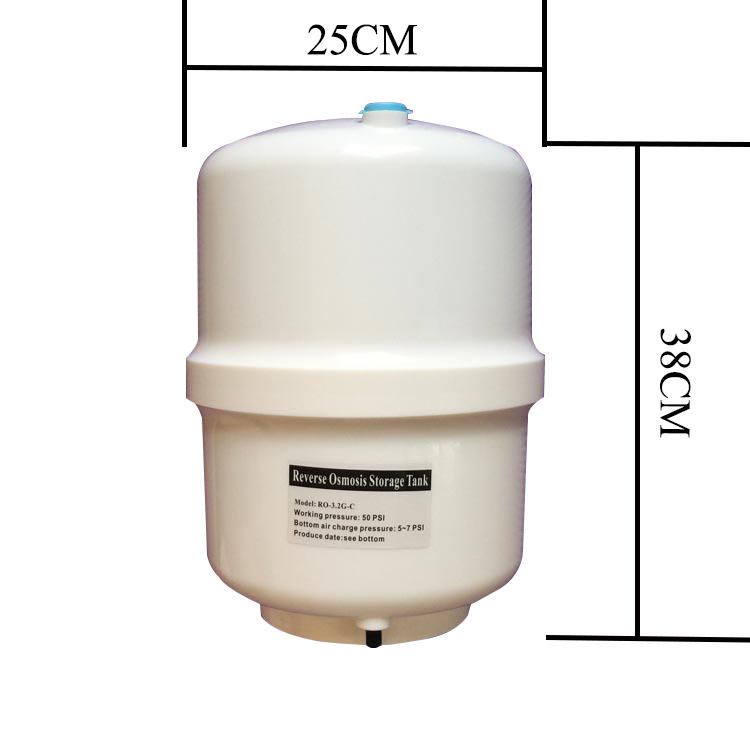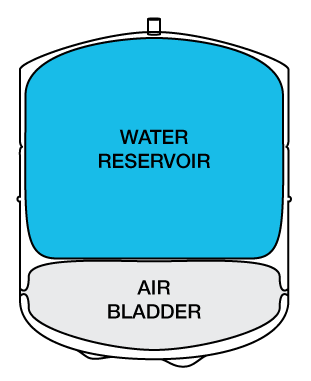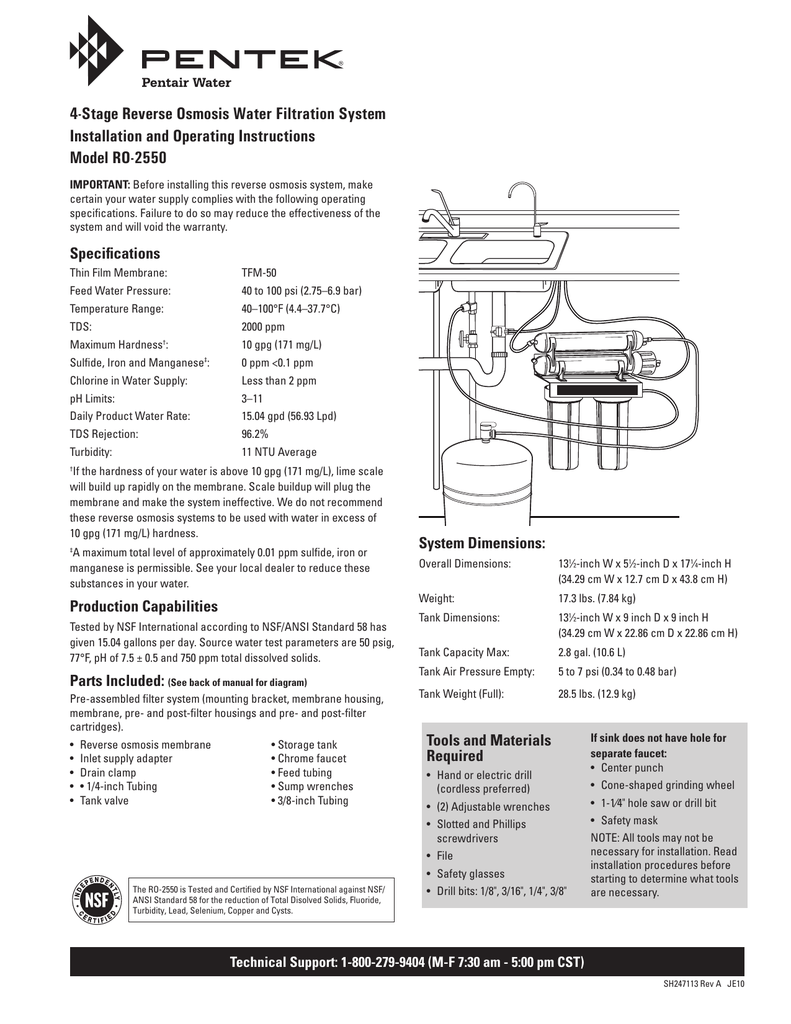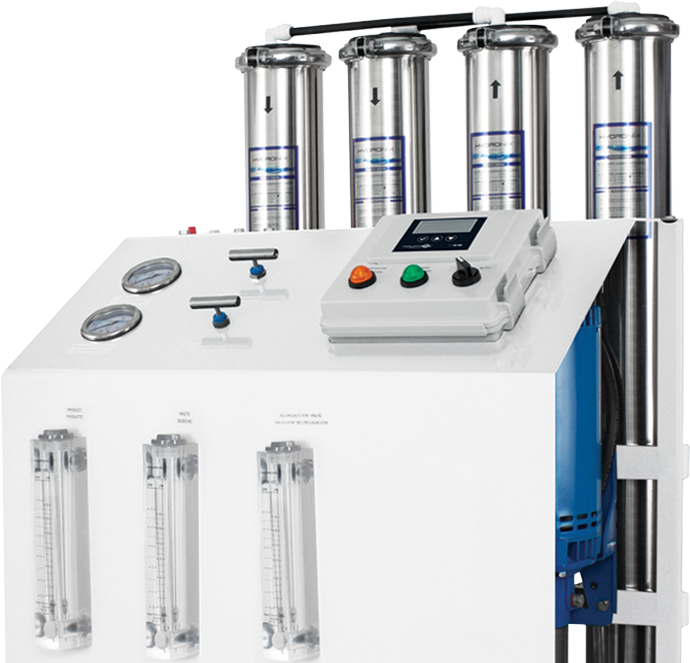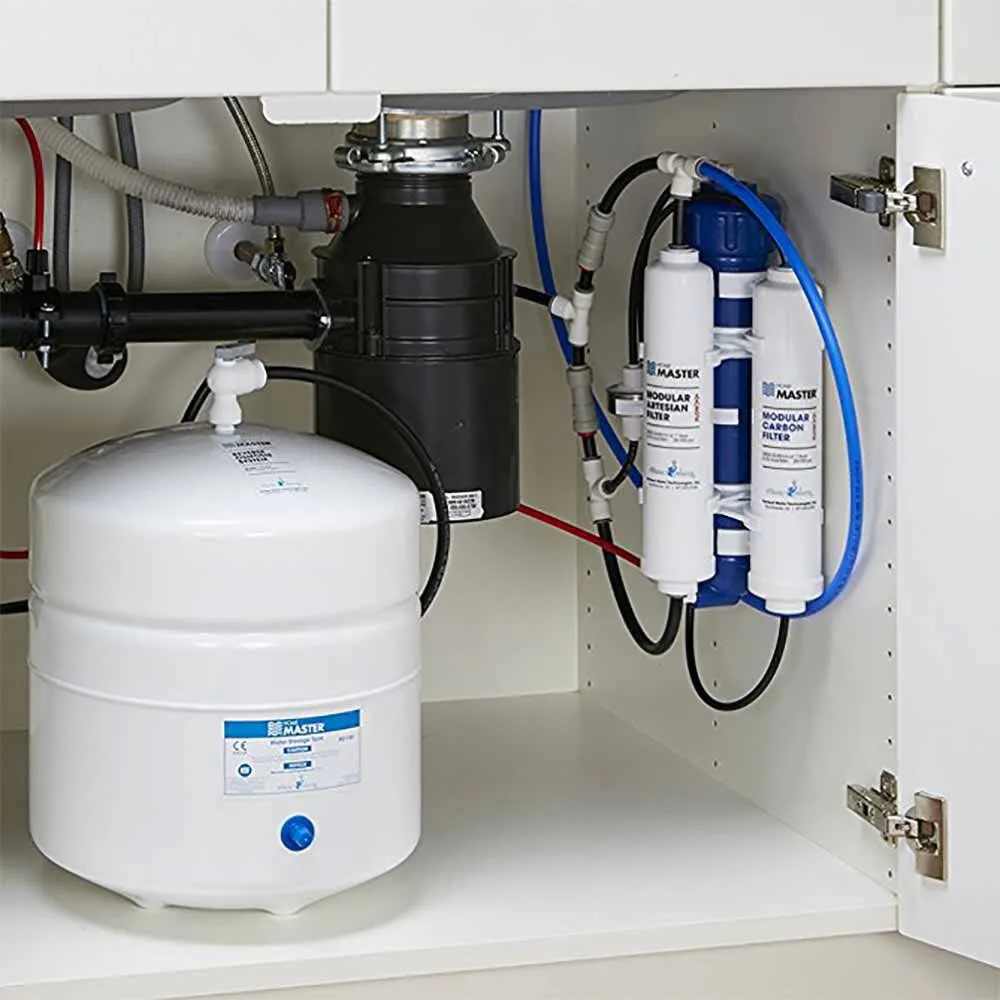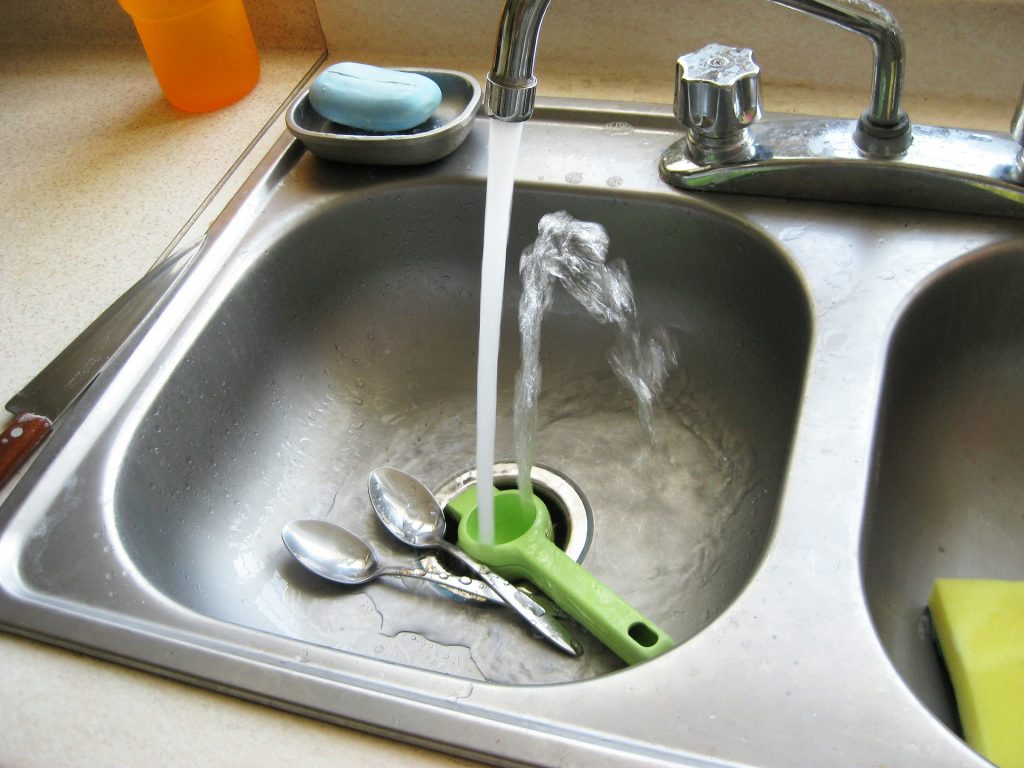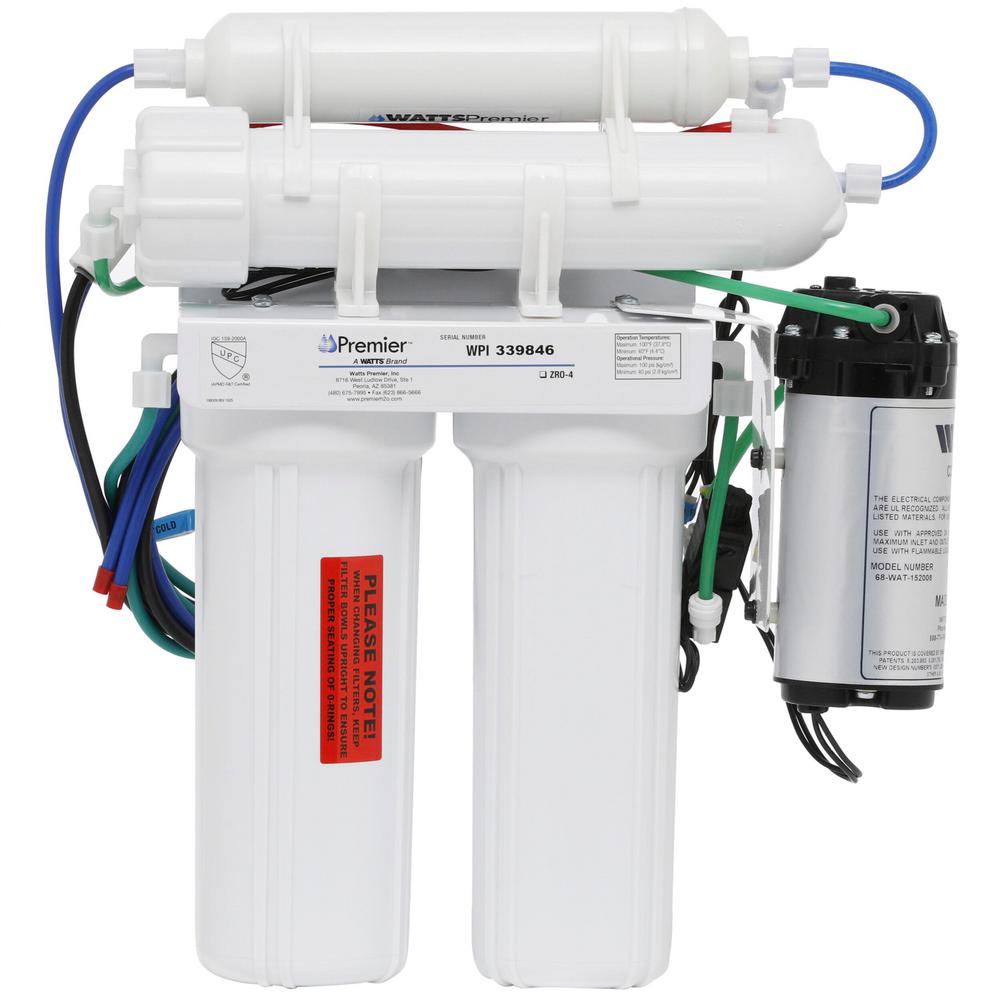Reverse Osmosis Tank Pressure When Empty
Water does not touch the metal or plastic shell of the tank.
Reverse osmosis tank pressure when empty. A reverse osmosis tank is simply a miniature well tank. Water enters and leaves the tank through the same tube. Most reverse osmosis systems will be getting their supply of water from the cold water supply directly under the sink where the system is located. The reverse osmosis system is equipped with a sensory valve that halts the production of water when the pressure in the tank reaches 2 3 of the line pressure.
The air compartment is pressurized and as you open the tap the air pushes on the water and it flows out through the tap. Open the unit s tap and allow the water to run until the tank is empty. Too much pressure in the tank can also reduce water flow since the tank can t hold much water if you get a reading above 7 psi on your pressure gauge release some of the pressure. Pressure tanks on wells and ro tanks work the same way.
In the pnrv18 model the tank holds approximately 1 5 gallons and in the pnrv model it holds 2 1 gallons. Making sure that the pressure in the storage tank is correct when it is empty will allow the bladder to fill to its ideal capacity while still having enough air pressure to let it empty completely. Like we mentioned above an empty ro tank has pressure of 6 to 8 psi. If the pressure in the tank is too high water will be unable to enter from the filters.
Use a pressure gauge to check the air pressure in the tank. The pressure in an empty tank should be eight pounds. The pressure in the tank needs to be measured when the tank is completely empty so let s start by shutting off the water supply to your reverse osmosis system. It takes 4 hours to produce 2 gallons of water.
If the pressure is too low the water inside the tank will not flow to. A standard air charged reverse osmosis storage tank works best when the pressure in the tank when empty is between 7 and 8 pounds per square inch psi. If the water pressure starts to fall again the tank may have a leaking bladder. The reverse osmosis tank maintains pressure throughout the reverse osmosis system and actuates the on off cycling of the system by monitoring line pressure.
How reverse osmosis tanks work. Inside the tank is a bladder made of a material called butyl. The water pressure decreases as the tank gets near empty since the reverse osmosis filter produces water at a slow rate. Allow four hours for the tank to fill and try again.
You ll have to buy a new reserve tank.


